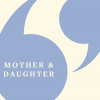Trigger warning: This letter contains information about sexual assault and violence which may trigger a level of distress.
My catalogue of transgressions began at the age of 14 when I was raped by a group of older teenage boys who had lured me away from the local youth centre for a game of hide ‘n’ seek in the stairwell of a local tower block. Here I was pinned up against a wall, before they took turns to rape me, running away when they heard my brother’s voice in the distance calling out my name in a bid to find me. As my brother entered the stairwell, he found me propped against the concrete wall dazed and in a state of undress. All I recall next are his vicious blows raining down on my head and face, whilst I was dragged home by my hair. Due to the extent of my injuries, which I found out at a much later date, included a fractured nose and cheekbone, I was absent from school for a fortnight. To this day, I have never spoken out about what happened to me.
How could I? I had besmirched the honour (izzat) of my family; the very thing which I was indoctrinated to believe must be upheld at any cost.
My wanton behaviour needed to be curbed in order to repair the damaged honour (izzat) of our wider communal family. I was now damaged goods and I needed to be disposed of to the nearest taker, quick sharp. In my case, I was taken overseas under the pretence of a holiday (yes, that old chestnut) to attend a family wedding, only to find I had been promised to my maternal cousin, the eldest child of ten children, and 15 years my senior.
My only means of survival was to comply with the suffocating demands placed upon me as a newlywed bride, as I was fully aware that any further misdemeanours on my part could potentially lead to being abandoned, with very little chance of returning home – like so many others, I didn’t want to be another number missing off the school roll. Only when they thought my fate (kismet) had been sealed with the announcement of the impeding birth of my first child (only still a child myself at 16) was I allowed to fly home to begin the process of applying for a spousal visa for my cousin come-husband-come-rapist, to join me in the UK.
Only, being married and with child at 16 was not my fate (kismet), no, it was a well-orchestrated operation in reining me in. I was perceived as too great of a threat to their well-polished community image as a feisty, free spirited, and vociferous teenager. For many, like myself, our lives were severed at the artery the very moment we were deemed too much of a risk of tainting the good name of our family. But how? By simply stepping outside the realms of conformity. The women and girls who do challenge these age old draconian practices, despite the consequences, are either often subtly shut down through a convoluted process of being ostracised en masse by the community at large, or at the very worst, killed.
As my pleas for a divorce were rapidly dismissed, and further measures were sanctioned to restrict my movements outside the family home, I was left with no other option but to run away. Little did I know at the time that this would trigger a mass search initiated by my family, which would be led by the police, local councillors, and community leaders, all of whom colluded in perpetuating the cycle of abuse within which I had become entrapped. My family had gone as far hiring a team of bounty hunters to recover me from the safe house where I had been placed, whilst the Police Liaison Officer, who acted as the conduit between myself and my family, urged me to return home on the basis of the high volume of calls he had received from various members of the community, allegedly concerned for my wellbeing.
I returned home on the Officer’s assurances that no further harm would come to me. Within weeks of returning home, I was being coerced to remain in the marriage, to begin the process of having my husband join me in the UK, and to retract the police statement I had made against my brother for assaulting me. As their unrelenting pleas to comply with their demands mounted, I again felt I had no other option but to escape by running away again. Only this time finding myself completely homeless and living in a derelict property in a notorious part of town.
I sit here quietly mourning my premature death at the tender age of 14, along with the deaths of thousands of other young women just like me - our lives brutally cut short. I have since, like so many others before me been left languishing in the bowels of hell.
The autopsies reveal a community complicit in these deaths, a community that chooses to remain silent in order to uphold the so-called honour (izzat) of its members. A community that turns a blind eye to the mass suffering among its women and girl folk. The very people it sets out to protect reflect the bizarre paradox, which besets the context of our very being, as British-Asian women living in Britain today.
Undoubtedly, there are those who are quick to retort back (as is often the case) with an air of McCarthyism, at how 'our women’ are no longer downtrodden #traditionallysubmissive, women who cannot step foot over the threshold of their own front doorstep without explicit permission from their kith and kin. Don't I know there are British-Asian women who can now speak several languages, who hold down high-powered careers with a string of letters after their name, along with neat six figure salaries, and a weekend cottage in the Cotswolds to boot - as somehow these caricatures of women are immune from male (and sometimes female) violence and abuse!
Yet, never questioning why for a number of decades’ schoolgirls, some as young as 11 or 12 years of age, have been systematically sexually exploited during the course of their school lives. Whether it was during the Bhangra ‘day-time raves’ during the mid 80’s and 90’s, or on their way to a local takeaway during their lunchbreak, or as they exited the school gates where they were targeted as sexual prey.
Rather than reporting the matter to the authorities to tackle the perpetrators at large, over recent years, some parents’ disquiet has led to policing the movements of their daughters through hiring private minibuses to ferry girls to and from school. Once again, perpetuating the damaging message that we as women must take responsibility for curbing the sexual predatory behaviour of men, which ultimately restricts our movements, as well as our right to feel safe in the wider world. A message we all too frequently communicate to our daughters.
Since 2010, over 12’000 honour based crimes, including violence, abduction, and harassment have been reported to the police across the UK. It is believed these figures are not reflective of the true proportion of these crimes, as women and girls are often too frightened to come forward and disclose information.
Ten years on, and I have managed to carve a life out for myself; I have acquired a professional diploma and a 1st class degree, quite a feat for someone who had left school with a handful of mediocre exam results and for someone who many believed wouldn’t be destined for much more than a life of servitude. Over time, I have made numerous attempts to reconcile the differences with my family, however, each time I choose to live a life which is not governed by their prescribed set of codes, the process of elimination begins: invitations to family gatherings, community and religious celebrations slowly cease. So do the occasional social phone calls, text messages, and social media exchanges – I’m either unfriended or blocked. My presence is far too much of a burden upon their respectability, with my absence confirming their quiet disapproval.
A decade has passed, yet a quick search reveals 3 cases of forced marriage alone are being reported to the authorities every day in the UK, with the Governments Forced Marriage Unit having received over 12,000 enquiries about forced marriage in the last twelve months. Despite the consequences, I continue to strive to live a life that is authentic, unlike other women from the British-Asian community whose only means of survival is to live a life often dictated by family and the wider community, whilst choosing to assert their autonomy outside the glare of judgement. I do not wish to be viewed as a victim of my circumstance, but rather as a woman who continues to survive despite the odds. Unfortunately, Rukshana Naz, Shafilea Ahmed, and Sahjdar Bibi, were all killed for dishonouring (bezhti) their families. According to the UN, 5,000 honour killings take place around the world each year.
Those of us who are not killed are often driven to take our own lives – British Asian women are three times more likely to attempt or commit actual suicide compared to other women. Something I myself have not been immune to - I’m all too aware of other women in my community who have tried to take their own lives.
As a community, it is our moral duty to begin the process of openly bringing some of these issues to the fore by raising awareness through dialogue and debate. This is the elephant in the room that we simply cannot continue to ignore any longer. The recent BBC drama ‘Murdered by My Father’ was able to draw on the complexities of honour (izzat) and the way in which it is woven into the fabric of family dynamics through a father’s compelling need to control his daughter’s increasing rebelliousness.
The drama is a starting point; what is needed is a much more robust support system in place, that is able to combat the diverse and multifaceted nature of the issues at hand, which are often inextricably linked with other forms of violence and abuse. This includes a country wide centralised monitoring system to be in place to comprehensively record incidents of forced marriages and honour based violence in order to develop a clearer understanding of the depth and nature of the problem across the UK. Bolstered by a cross-sector support response to create a raft of provisions, including public awareness raising campaigns, specialist refuges, alongside increased resources to specialist grassroots community-based women’s services.
I am hopeful the next decade will bring real change.
Yours faithfully,
Sara Karim
A Survivor
















